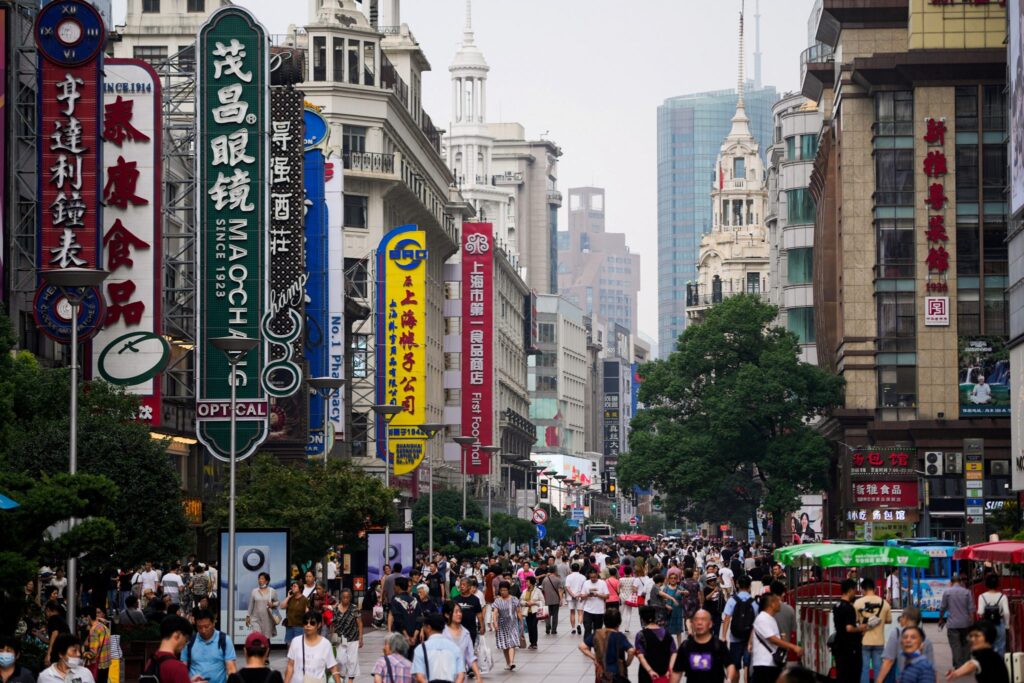
China has earmarked 200 billion yuan ($28 billion) for local government investment projects this year, reinforcing its commitment to achieving ambitious economic growth targets. The announcement was made by the National Development and Reform Commission (NDRC) during a press conference on Tuesday, though it fell short of investor expectations for a larger stimulus package.
“We are confident in achieving the annual economic and social development goals and tasks, and in maintaining sustained, stable, and healthy economic and social development,” said Zheng Shanjie, chairman of the NDRC.
Despite China setting a 5% growth target in March, a series of weak economic data throughout the summer raised concerns that the goal might be missed. The world’s second-largest economy is grappling with a property crisis, sluggish consumer spending, and high youth unemployment.
In response, Beijing will provide 100 billion yuan ($14 billion) from the central government’s budget and an additional 100 billion yuan for investment projects to support local governments facing heavy debt burdens, according to Zheng.
Economists had anticipated more substantial fiscal measures—around 2 trillion yuan ($285 billion)—to be announced this month. Chinese leader Xi Jinping gave the green light for a new growth plan in late September, following months of poor economic performance.
“The NDRC sent a clear message today that policymakers will maintain a pro-growth stance. However, investors were disappointed by the lack of specifics on new fiscal measures,” said Fred Neumann, chief Asia economist at HSBC. He added that fiscal easing is urgently needed for sustainable growth and is likely to come later in the month.
Last month’s measures have primarily focused on monetary policy, with decisions from the central bank aimed at influencing borrowing costs and controlling inflation. Fiscal measures, such as changes in taxation and public spending, are expected to play a more direct role in boosting economic activity.
The absence of a major fiscal stimulus announcement on Tuesday dampened stock market enthusiasm in Hong Kong and mainland China. After an initial surge, blue-chip stocks in Shanghai and Shenzhen saw gains pared down, while Hong Kong’s Hang Seng Index lost more than 5%, following its best two-week performance since 2005.
Looking ahead, many economists argue that more aggressive action is needed to revive consumer confidence. Jia Kang, a former director at a think tank affiliated with China’s Ministry of Finance, suggested last week that Beijing should issue up to 10 trillion yuan ($1.4 trillion) in long-term government bonds to fund infrastructure and public works.
Citi economists echoed this sentiment, stating that a stimulus package equivalent to 10% of China’s GDP may be required to turn the economy around, drawing parallels to previous large-scale stimulus efforts by the government.
On September 24, the People’s Bank of China cut one of its key interest rates and reduced the amount of cash banks are required to hold in reserve. Additional support measures included mortgage rate cuts, lower down payments for second-home buyers, and pledges to stabilize the stock market.
The government also introduced rare cash handouts to disadvantaged citizens and promised subsidies to help recent graduates find jobs. In a September meeting, the Communist Party’s 24-member Politburo, led by Xi Jinping, signaled a strong focus on economic issues, promising urgent action to boost fiscal spending, stabilize the property market, and improve employment opportunities for young graduates and migrant workers.





